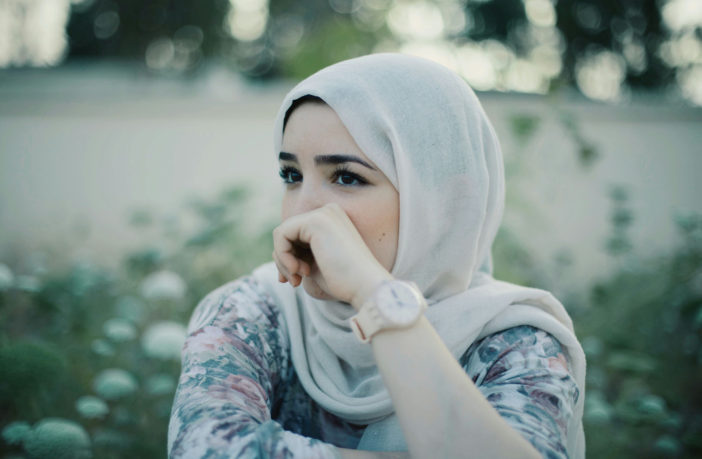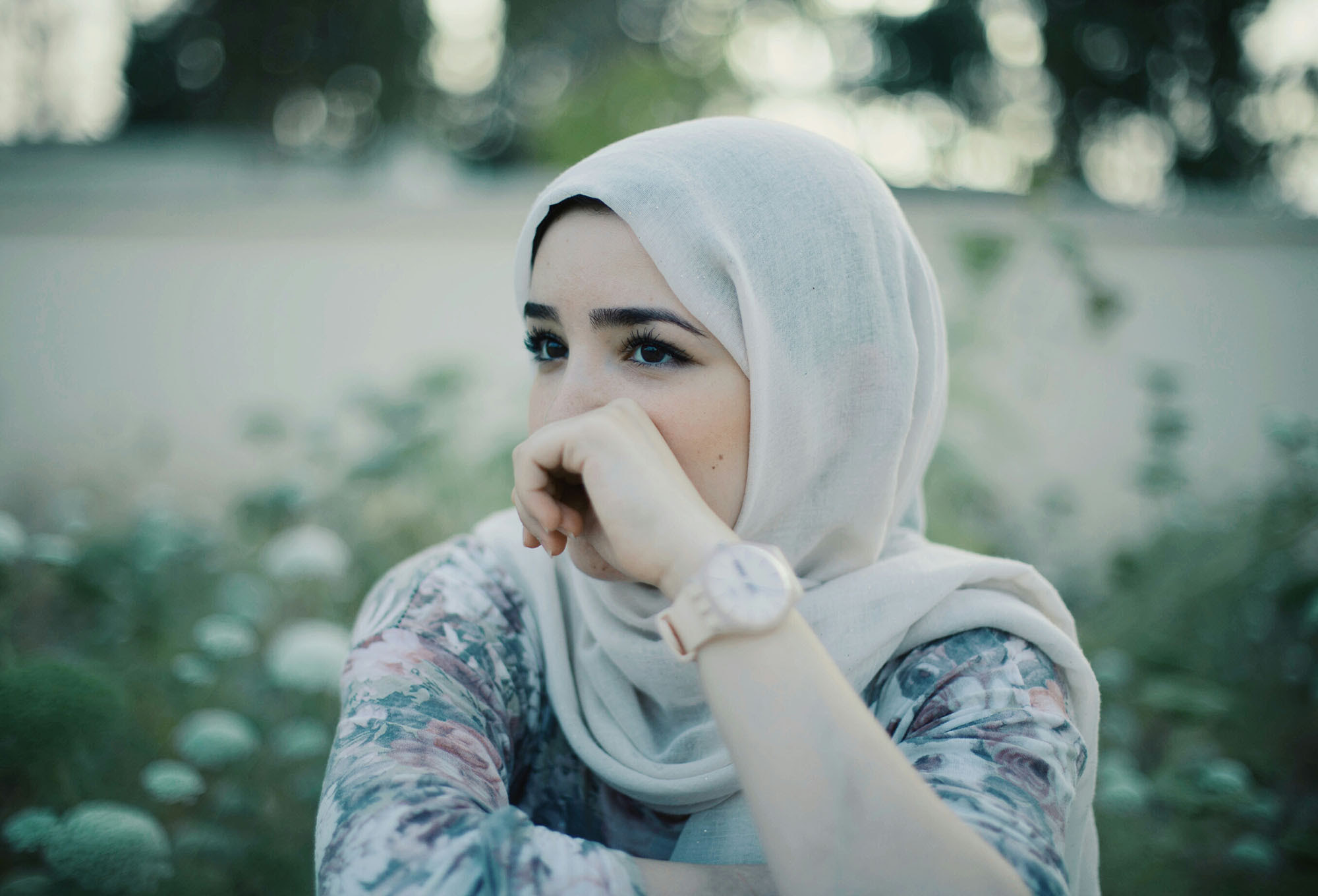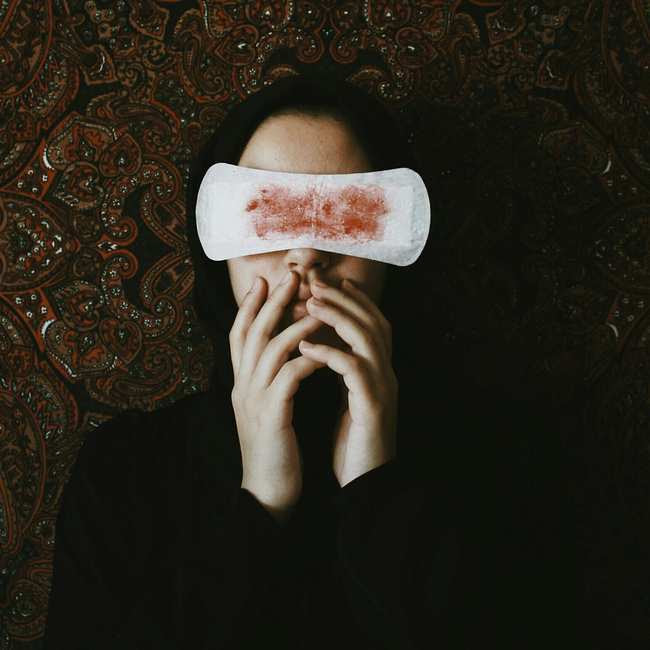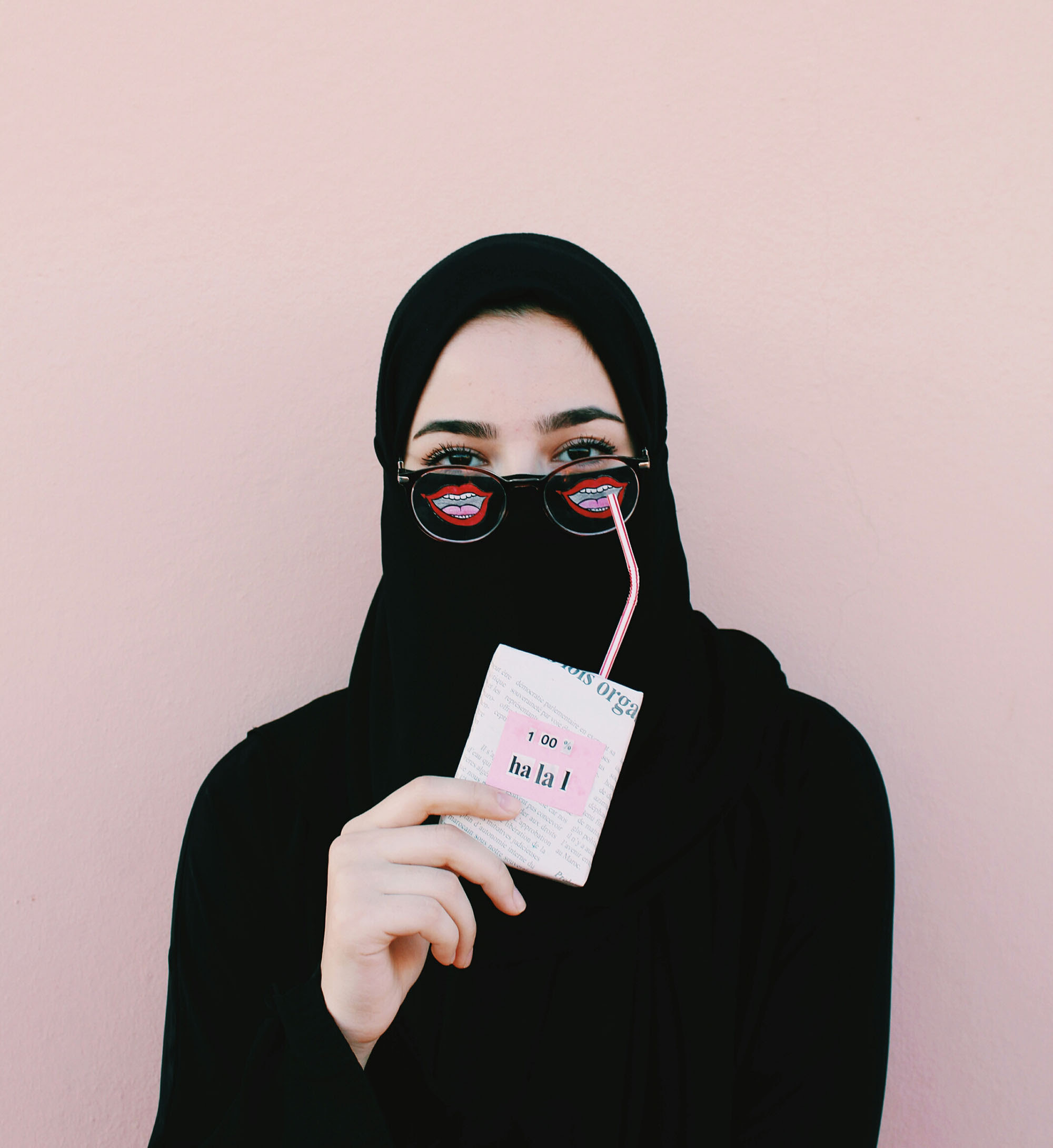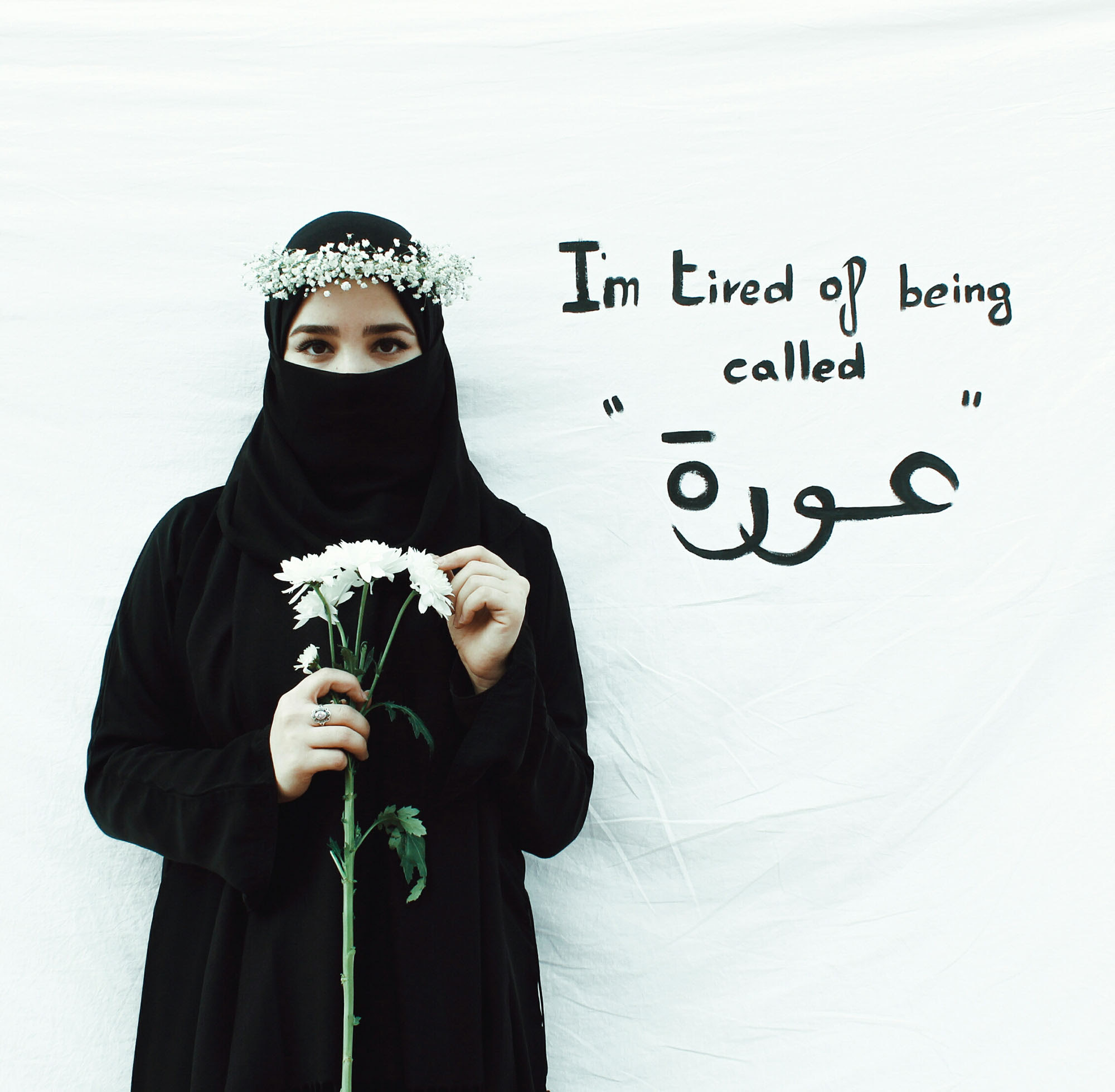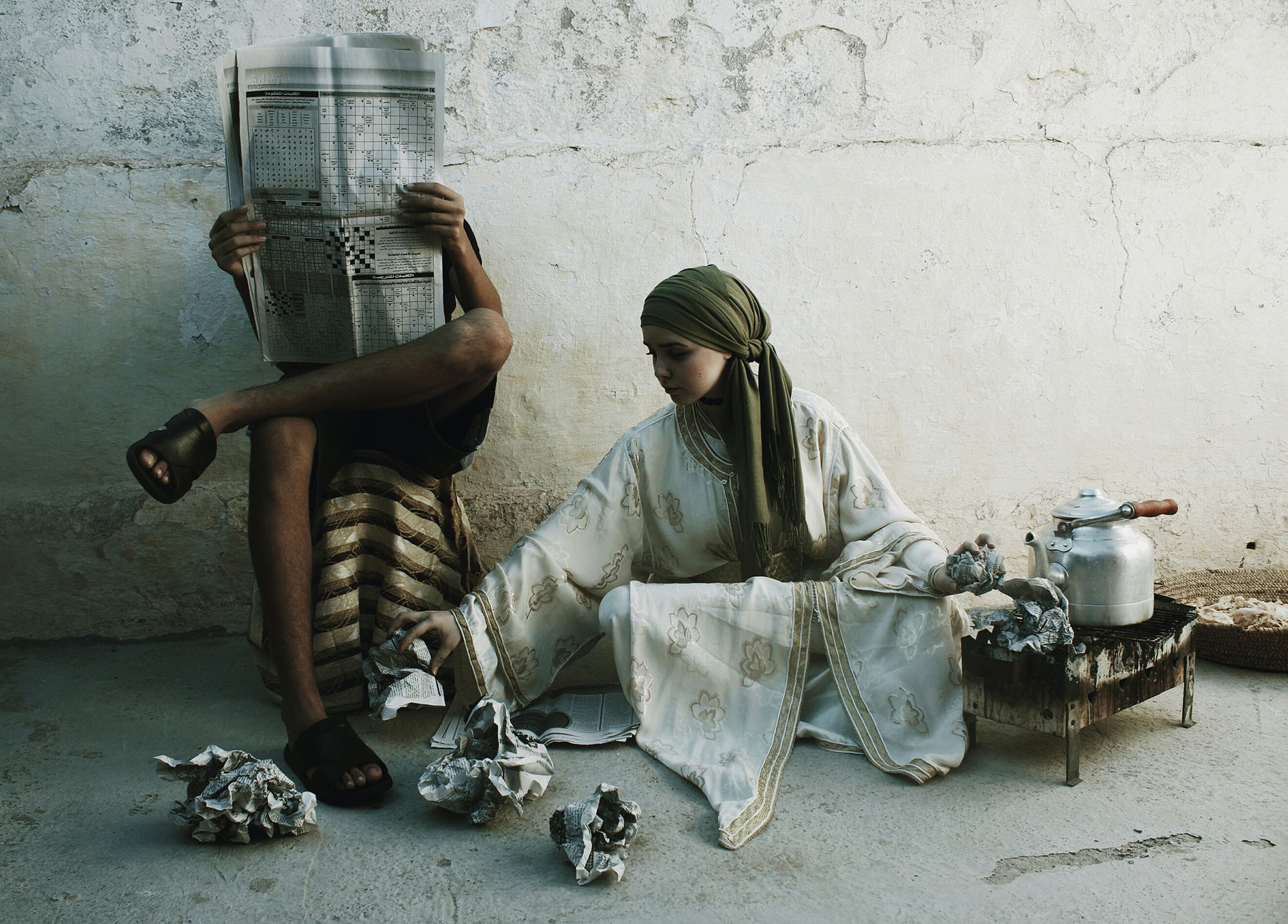Vice
Zainab Hussein
All photos: Fatima Zohra Serri
Through her photography, Fatima Zohra Serri finds unique ways to express her views on the position of women in her community.
This article originally appeared on VICE Arabia
Fatima Zohra Serri wanted to study photography after leaving high school, which would have meant leaving her hometown of Nador in northern Morocco. However, her conservative father wouldn’t let her – he believed that girls shouldn’t live far from home. So, instead, the 23-year-old studied at Nador’s Applied Technology Institute and eventually become an accountant in her home city.
But Fatima never lost her passion for photography. Alongside her day job, she has built a considerable social media following by dedicating her work to finding creative ways to shed light on the discrimination that she and many women in her community face.
I spoke with Fatima to find out what inspired her work, and asked her to take me through some of her most popular and controversial pieces.
Fatima Zohra Serri
VICE: As a photographer, why did you decide to focus on women’s issues?
Fatima Zohra Serri: These issues are personal to me because I live in a very conservative society. My aim is to reverse the perception of women and fix the way people treat us. For example, my father is very controlling and often stops me from doing so many things just because I’m a woman. I remember crying my eyes out when he first forced me to wear a hijab, but there was nothing I could do about it. Through my photography, I’m trying to raise awareness of these details of our lives. And as I’m not allowed to get out and practice much of my photography, I’ve set up my own studio in our home.
Is wearing the hijab still a challenge for you?
I’ve gotten used to wearing it – though there are times when I want to take it off, but I can’t. However, it doesn’t get in the way of me practicing my art and expressing myself. On the contrary, I sometimes see it as a strength – I am a woman wearing a hijab while discussing controversial topics.
What does your family think of your work?
All of my family members follow me on social media, and they seem to enjoy my work, even my father. My mother especially loves it; we are very close. Most of the criticism I receive doesn’t come from them, but there have been a few photos that upset them, such as the one where I used a sanitary pad to highlight violence against women.
What did the sanitary pad represent?
I could have photographed a woman with blood and bruises across her face, but I wanted to use a pad to signify that the pain could come from anywhere. I also wanted to talk publicly about periods – a topic that is still seen as a bit of a taboo in our society.
Can you take us through some of your other photos? Firstly, the image of a girl holding “100% halal juice”.
It’s a sarcastic take on the often-heard mantra in our society that demands women must always cover their “sexy parts”. The idea is to demonstrate the challenges that could present. In this case, it’s a woman who can’t drink something as simple as juice because her mouth is covered. I drew a mouth on the glasses so she doesn’t have to show her skin, and made the juice “100% halal” so that there wasn’t anything left for anyone to criticise her for.
What about the photo of with the inscription “I’m tired of being called Awrah”?
I was inspired by an American project called “I’m tired of…”, where contributors wrote down the biggest personal issues they were experiencing. I liked the idea so much that I wanted to adapt it by saying “I’m tired of being called Awrah” [a term often used in Arab countries to shame women into dressing and acting more conservatively].
For example, my male colleagues are quick to ask me to lower my voice when I speak up; or when my hair slips out of my scarf, everyone immediately points out that I should put it back in. Even my female colleagues at work say that wearing perfume should be avoided because it stimulates men. And then there are those who tell me not to wear certain clothes that show my curves. All of these comments put me in the “Awrah” zone. The flowers in the picture represent that beauty is not something women should hide.
And finally the photo with the man holding a newspaper?
Many parents here take their daughters out of primary school in order to marry them off, while they send their sons abroad to study. When I was younger, many of my female friends were taken out of school to learn housekeeping to prepare them for marriage.
I tried to express this reality in one picture. Firstly, the men in my community are always considered to be more important than women, so the woman is sitting on the floor and the man is above her on a chair. Next, the man reads the newspaper, and when he’s done, he throws the paper scraps to his wife, who then uses them to set the fire and prepare hot water for tea. With that, I tried to show how gaining knowledge is granted to men only.
Thanks, Fatima.
You can follow Fatima’s work on Instagram.
This article originally appeared on VICE AR.
Tagged:
women
SEXISM
misogyny
VICE International
vice arabia




